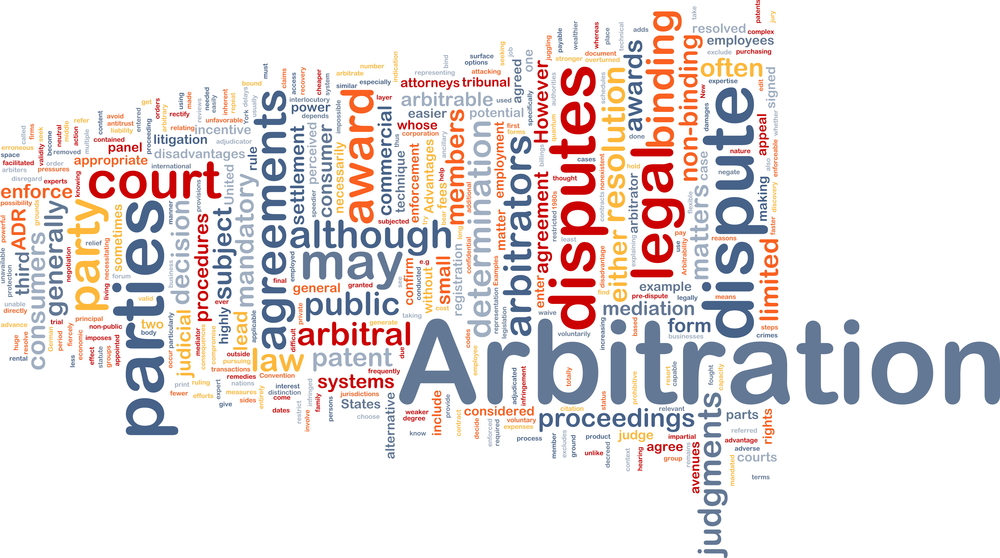
03 Mar Common Questions About Business Contracts, Part IV—Forum Selection
In our last three blogs Edwards Law provided a sample business contract to demonstrate what a simple employee business agreement looks like; sample language for prevailing party and indemnification provisions in your business contract; and integration clauses. Today, we address another important boilerplate provision always found in business contracts—the forum selection clause.
What Is a Forum Selection Clause?
A forum selection clause controls where and how future disputes on the contract will be handled. It allows the parties to agree that any disputes relating to that contract will be resolved in a specific forum, such as a court of law, in arbitration or in mediation. It can also dictate which laws will apply. The clause can be “mandatory” or “permissive”.
A mandatory forum selection clause contains clear language showing that jurisdiction is appropriate only in the designated forum, whereas a permissive forum selection clause authorizes jurisdiction in a designated forum but does not prohibit use of another forum.
For example, in a mandatory forum selection clause, an employee in an employment contract could be limited to suing his employer in the United States District Court for the District of Colorado. Typically, the employee would waive any objection to jurisdiction and venue.
In a permissive venue clause, disputes might be governed and construed under the law of the state of Colorado, and both parties would “expressly consent to the jurisdiction and venue of Colorado federal courts.” However here the parties are not required to sue in federal court.
Parties could also agree to a mandatory arbitration clause, which would require all claims under the contract to be submitted to arbitration for determination, typically by one arbitrator, in accordance with the commercial arbitration rules of the American Arbitration Association.
What Does a Forum Selection Clause Look Like?
A sample forum selection clause is below. Please note that by providing this sample provision, Edwards Law is not providing legal advice. The facts behind your particular contract may warrant additional language not covered in this sample provision:
Jurisdiction. The parties hereby agree that any suit, action or proceeding seeking to enforce any provision of, or based on any matter arising out of or in connection with, this Agreement or the transactions contemplated hereby, and all related documents (including all schedules attached hereto), whether sounding in contract, tort, or statute, are governed by, and construed in accordance with the laws of the State of Colorado (including its statutes of limitations and applicable state choice of law statute(s)), without giving effect to the conflict of laws provisions thereof to the extent such principles or rules would require or permit the application of the laws of any jurisdiction other than those of the state. Any such suit shall be brought in the United States District Court for the District of Colorado or, if such court lacks subject matter jurisdiction, in the applicable State District Court of Colorado, so long as one of such courts shall have subject-matter jurisdiction over such suit, action or proceeding, and that any cause of action arising out of this Agreement shall be deemed to have arisen from a transaction of business in the State of Colorado. Each of the parties hereby irrevocably consents to the jurisdiction of such courts and of the appropriate appellate courts therefrom in any such suit, action or proceeding and irrevocably waives, to the fullest extent permitted by law, any objection that it may now or hereafter have to the laying of the venue of any such suit, action, or proceeding in any such court or that any such suit, action, or proceeding that is brought in any such court has been brought in an inconvenient forum. Service of process, summons, notice, or other document by registered mail to the address set forth in Section _____ shall be effective service of process for any suit, action, or other proceeding brought in any such court.
If a party has freely negotiated to be subject to a forum jurisdiction, they are generally held to be subject to that jurisdiction. One exception to this rule is if there is a strong public policy against enforcement of the forum. Arbitration clauses are usually upheld because there is strong public policy in favor of arbitration.
A forum selection clause may also be found unenforceable if application of the selected forum is unfair or unreasonable or was induced by fraud. Whether a clause rises to the level of “unfairness or unreasonableness” is typically a fact-specific question.
The court will consider whether the provision and the contract were freely negotiated; whether the terms of the provision are clear and unambiguous; whether the provision conflicts with another provision in the contract; whether there is a severability clause; and whether the provision is conspicuous.
Forum selection clauses are critical to any good contract and must be drafted with knowledge of the applicable law and which forum’s laws would best benefit the underlying subject matter. Call Edwards Law today for a complimentary, 15-minute consultation about your business contract needs.

Victoria Edwards is a skilled general business and litigation attorney with 16 years of experience litigating for and advising large banking and financial institutions, insurance/oil & gas/mining companies, construction companies, and various small businesses on complex business matters, including business contracts formation and interpretation, and novel bankruptcy issues.
With this substantial experience, Ms. Edwards now works with small businesses and entrepreneurs to anticipate potential issues with their business matters; draft business contracts; as well as to initiate and manage commercial and civil liability disputes concerning business contracts, commercial law matters, breach of contract and business torts, and unfair competition/unfair business practices/defamation issues.
Ms. Edwards is admitted to practice law in the state courts of Colorado, California, New York, and New Jersey. She is also admitted to practice in the United States District Court for the District of New Jersey, the Southern and Eastern Districts of New York, the District of Colorado, the United States Bankruptcy Court for the District of Colorado, all of the District Courts and Bankruptcy Courts of California, and the United States Court of Appeals for the Eighth, Ninth, and Tenth Circuits.


No Comments